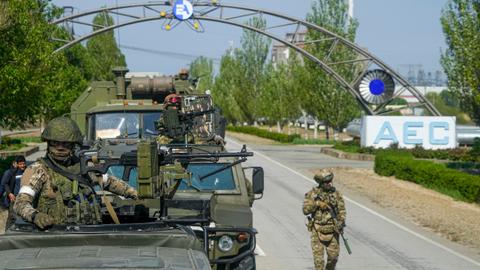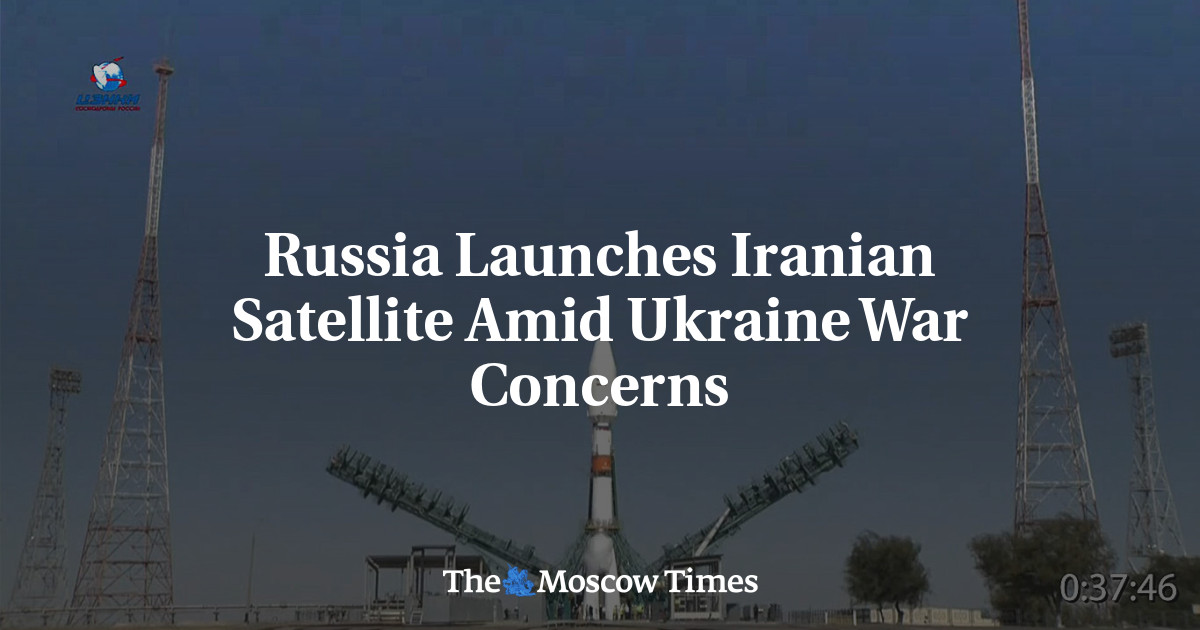
The UN Security Council has held an emergency over the situation around Zaporizhzhia plant — Europe's largest nuclear facility — and warned of a "grave" crisis unfolding in Zaporizhzhia.

Kiev and Moscow have exchanged blame for fresh shelling around Europe's largest nuclear facility, with the strikes raising fears of a nuclear catastrophe.
The Zaporizhzhia plant in southeastern Ukraine has been occupied by Russian forces since March and has come under fire repeatedly in the past week. It dominates the south bank of a vast reservoir on the Dnipro river.
During his televised address on Saturday, Ukrainian President Volodymyr Zelenskyy accused Russia of nuclear "blackmail" and using the plant to "intimidate people in an extremely cynical way".
"They arrange constant provocations with shelling of the territory of the nuclear power plant and try to bring their additional forces in this direction to blackmail our state and the entire free world even more," Zelenskyy said.
Backed by Western allies, Ukraine has called for a demilitarised zone around the plant and demanded the withdrawal of Russian forces. Kiev accuses Moscow of basing hundreds of soldiers and storing arms there.
In his address, Zelenskyy added that Russian forces were "hiding" behind the plant to stage bombings on the Ukrainian-controlled towns of Nikopol and Marganets.
"Every Russian soldier who either shoots at the plant, or shoots using the plant as cover, must understand that he becomes a special target for our intelligence agents, for our special services, for our army," Zelenskyy said.
Ukraine's nuclear agency Energoatom warned residents in the city of Energodar, where the plant is located, to stay off the streets as much as possible to avoid Russian shelling.
"According to residents, there is new shelling in the direction of the nuclear plant...the time between the start and arrival of the shelling is 3-5 seconds," Energoatom said on Saturday in a message shared on Telegram from a local chief in Energodar city, which remains loyal to Kiev.
READ MORE: Ukraine 'targeting' Russians shooting at, or from nuclear plant
[embed]https://www.youtube.com/watch?v=4OwUG_hYrV4[/embed]
Russia-backed officials blame Ukraine
But pro-Moscow officials in the occupied areas of Zaporizhzhia blamed the shelling on Ukrainian forces.
"Energodar and the Zaporizhzhia nuclear plant are again under fire by Zelenskyy's militants," said Vladimir Rogov, a member of the Moscow-installed administration.
The missiles fell "in the areas located on the banks of the Dnipro river and in the plant", he said, without reporting any casualties or damage. The river divides the areas occupied by Russia and those under Ukraine's control.
Ukraine said the first strikes on August 5 hit a high-voltage power cable and forced one of the reactors to stop working. Then strikes on Thursday damaged a pumping station and radiation sensors.
Ukrainian presidential adviser Mykhailo Podolyak accused Russia of "hitting the part of the nuclear power plant where the energy that powers the south of Ukraine is generated".
"The goal is to disconnect us from the (plant) and blame the Ukrainian army for this," Podolyak wrote on Twitter.
The UN Security Council has held an emergency over the situation and warned of a "grave" crisis unfolding in Zaporizhzhia.
The International Atomic Energy Agency, which is seeking to inspect the plant, has warned of a nuclear disaster unless fighting stops.
Kiev has said for weeks it is planning a counteroffensive to recapture Zaporizhzhia and neighbouring Kherson provinces, the largest part of the territory Russia seized after its February 24 offensive.
Russian and Ukrainian forces earlier fought for control of Chernobyl, the still-radioactive site of the world's worst nuclear accident, also raising fears of a disaster.
READ MORE: US says Russia set to hold 'sham' referendums in Ukraine regions
Source: TRTWorld and agencies
Source https://www.globalcourant.com/concerns-grow-as-kiev-moscow-trade-blame-over-shelling-near-nuclear-plant/?feed_id=10671&_unique_id=62f8a039a7ef2


